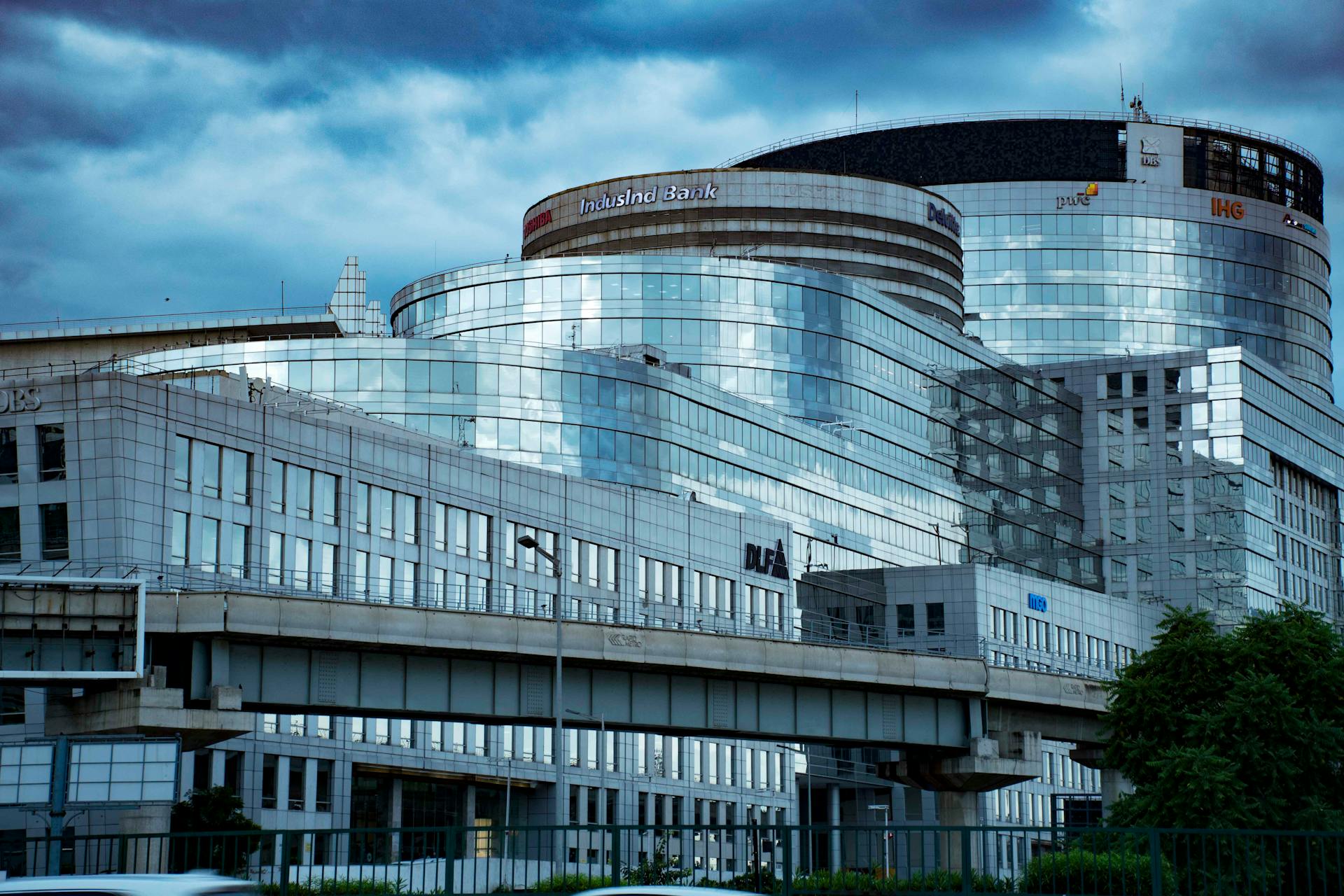
AAA homeowners insurance covers a range of risks to protect your home and belongings.
Damage from fires, lightning strikes, and windstorms is covered under the standard policy.
The insurance also covers damage from theft and vandalism.
The cost of repairing or replacing your home's structure, including the roof, walls, and foundation, is covered in case of damage.
What AAA Homeowners Insurance Covers
Your insurance company lists the "perils" or problems that they cover in your certificate of insurance. These typically include loss from fire, lightning, wind or hail, theft, vandalism, weight of snow or ice, and falling objects.
If a tree falls through your roof, your insurance will pay to repair the damage after the deductible is met. Or, if a kitchen fire breaks out, your insurance will cover the cost of repairs.
Here's a list of some common perils covered by AAA Homeowners Insurance:
- Fire
- Lightning
- Wind or hail
- Theft
- Vandalism
- Weight of snow or ice
- Falling objects
You may also be covered for sudden and accidental damage to interior systems, such as walls, floors, and appliances, but not the repair of the underlying plumbing issue causing these problems.
Service Line
Service Line coverage is a vital aspect of homeowners insurance that protects against unexpected expenses related to damage of service lines on a property.
Repairs for damaged service lines can be costly, with average expenses ranging from $3,000 to $4,000, and potentially higher depending on the severity of the damage.
Service Line coverage typically covers damage to exterior underground service lines, such as water, sewer, or power lines.
Damage to service lines can occur due to various factors, including rust, corrosion, ground freeze, root invasion from plants, accidental damage during landscaping, rodent activity, and general wear and tear.
Service Line coverage often requires a deductible, commonly around $500, and applies to lines that provide service to the homeowner's residence and related private structures on the property.
Having Service Line coverage can provide homeowners with peace of mind, considering the potential costs and headaches associated with damaged service lines.
Home Hosting
If you're considering hosting guests in your home, you'll want to know that a standard homeowners insurance policy can provide incidental rental coverage.
This type of coverage protects your home and personal belongings from damage or destruction, so you can rest assured that your guests' mistakes won't leave you with a hefty bill.
You can receive up to 50% to 70% of your dwelling limits in personal property coverage, which can help cover the cost of replacing or repairing items that your guests might break.
Liability coverage can also help protect you in case a guest gets injured on your property, paying for their medical bills and other legal costs associated with the lawsuit.
If your home becomes uninhabitable due to a covered event, loss of use coverage can pay for your accommodations, food expenses, and other costs until your home is repaired.
Home Covers
Homeowners insurance covers a wide range of problems, including fire, lightning, wind or hail, theft, vandalism, weight of snow or ice, and falling objects.
Some common perils covered by homeowners insurance include:
- Fire
- Lightning
- Wind or hail
- Theft
- Vandalism
- Weight of snow or ice
- Falling objects
If a tree falls through your roof, your insurance will pay to repair the damage, but only after the deductible is met.
Homeowners insurance typically covers sudden and accidental damage to interior systems, such as walls, floors, and appliances, but it generally does not cover the repair of the plumbing leak itself or damage from leaks that develop over time.
Damage to roofs, air conditioning units, and foundations resulting from theft, fire, hail, storms, and other events specified within the policy is typically covered, but the repair of the underlying plumbing issue causing these problems may not be included.
Homeowners insurance covers mold, termite damage, tree damage, and water damage under certain conditions, but it's essential to check your policy to see what's covered and what's not.
In the event of a plumbing disaster, standard homeowners insurance typically covers sudden and accidental damage to interior systems, but it may not cover the repair of the plumbing leak itself or damage from leaks that develop over time.
If you're unsure what's covered under your homeowners insurance policy, it's always a good idea to review your policy documents or consult with your insurance provider.
Usually Not Cover
Homeowners insurance policies from AAA have some limitations to their coverage. Here are some examples of what's usually not covered.
Neglect can be a costly mistake, and it's not something that AAA homeowners insurance will cover.
Ordinance laws can require property owners to make significant changes to their homes, but these changes aren't covered by insurance.
Wear and tear is a natural part of owning a home, but it's not something that insurance will cover.
Earthquakes and mudslides are natural disasters that can cause significant damage, but they're not covered by AAA homeowners insurance.
Water damage from flooding or sewage back-up is a common issue, but it's not covered by standard homeowners insurance policies.
Birds, rodents, insects, or vermin can cause significant damage to your home, but this type of damage is usually not covered by insurance.
Rust, smog, and dry rot are all types of damage that can occur over time, but they're not covered by AAA homeowners insurance.
Power failures can be a significant issue, but they're not something that insurance will cover.
Intentional loss, such as vandalism or arson, is not covered by homeowners insurance policies.
Government actions, such as property seizure, are not covered by AAA homeowners insurance.
Here's a summary of what's usually not covered by AAA homeowners insurance:
- Neglect
- Ordinance law
- Wear and tear
- Earth movement (e.g. earthquakes, mudslides)
- Water damages (e.g. flooding, sewage back-up)
- Birds, rodents, insects, or vermin
- Rust, smog, or dry rot
- Power failure
- Intentional loss
- Government action (e.g. property seizure)
Water Damage at Home
Water damage at home can be a nightmare, but understanding what's covered by your homeowners insurance can help alleviate some of the stress. Most standard policies cover water damage from sudden events like a leaking pipe or a roof leak caused by a wind storm.
However, if the roof leaks due to old age and lack of maintenance, you'll have to pay for the repairs yourself. Regular checks and repairs are emphasized by insurance companies to avoid costly and preventable damage.
If your home is damaged by water, your standard policy may cover damage to items like permanent carpeting, walls, floors, and paint. But it won't pay to repair or replace the pipe itself if it breaks.
Some common sources of water damage that are typically covered by homeowners insurance include wind-driven rain, roof leaks caused by a sudden event, and leaks from appliances like washing machines or dishwashers. Water damage from a leaking roof is also usually covered, as long as the roof started leaking due to an accident listed in your policy.
Here are some examples of water damage sources that are typically covered by homeowners insurance:
- Wind-driven rain
- Roof leaks caused by a sudden event
- Leaking or broken pipes
- Leaking appliances like washing machines or dishwashers
- Water used to put out a fire
It's essential to note that water backup coverage is considered essential for homeowners, as it covers common and costly water damage incidents not normally covered by basic home insurance. This coverage protects homeowners from the financial impact of damage resulting from sewer backups, sump pump failures, and other related incidents.
Sources
- https://www.acg.aaa.com/insurance/insurance-benefits-home.html
- https://cluballiance.aaa.com/the-extra-mile/advice/home/what-homeowners-insurance-actually-covers
- https://living.acg.aaa.com/insurance/pipe-dreams-how-homeowners-insurance-handles-plumbing-problems
- https://mwg.aaa.com/insurance/home/articles/does-homeowners-insurance-cover-roof-damage
- https://mwg.aaa.com/insurance/home/articles/does-homeowners-insurance-cover-water-damage
Featured Images: pexels.com


